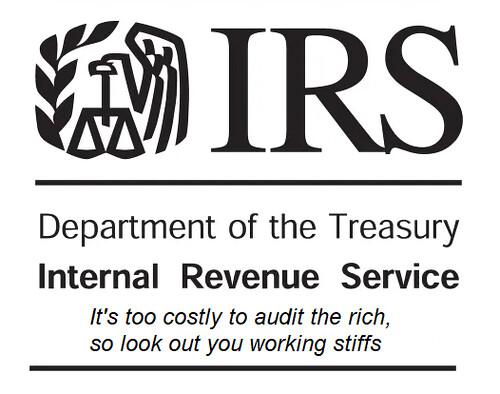In the intricate web of tax laws and financial regulations, the question of whether the IRS is privy to your inheritance may linger on the minds of many. As seasoned practitioners in estate planning and probate law, we at Morgan Legal Group frequently navigate the nuances of such inquiries with precision and expertise. Join us as we unravel the complexities surrounding the subject: “Does the IRS know when you inherit money?” Explore the intricacies and implications of inheritance taxation, as we demystify the IRS’s watchful eye over your inherited assets.
Understanding the IRS reporting requirements for inherited money
IRS reporting requirements for inherited money can be complex and confusing. When you inherit money, the IRS does have a way of finding out, especially if the estate goes through probate. It is important to understand the tax implications of inherited money to avoid any issues with the IRS. Here are some key points to keep in mind:
- Form 706: The executor of the estate is responsible for filing Form 706, also known as the Estate Tax Return, if the estate is over the exemption amount set by the IRS.
- Form 1041: If the estate generates income after the decedent’s death, the executor may need to file Form 1041, the Income Tax Return for Estates and Trusts.
- Income Tax: Any income received from inherited money may be subject to income tax. It is important to accurately report this income to the IRS to avoid penalties.
In conclusion, it is crucial to understand the IRS reporting requirements for inherited money to ensure compliance with tax laws. Consulting with a professional, such as an estate planning attorney, can help navigate the complexities of these requirements and ensure a smooth process.
Key factors that determine if the IRS is aware of your inheritance
Inheritance can be a tricky subject when it comes to taxes, as the IRS may or may not be aware of the money you receive. There are several key factors that can determine whether the IRS is notified of your inheritance:
- Reporting requirements: Depending on the amount of the inheritance, there may be reporting requirements that trigger notification to the IRS.
- Legal documentation: If the estate goes through probate, there will likely be legal documentation that the IRS can access to see the details of the inheritance.
- Gift tax returns: If the inheritance is considered a gift and exceeds the annual gift tax exclusion amount, it may be reported to the IRS through gift tax returns.
Ultimately, whether the IRS knows about your inheritance depends on these factors and how the estate is handled. It is important to consult with a knowledgeable attorney, like the experts at Morgan Legal Group, to navigate the complexities of inheritance and tax implications.

Potential consequences of not reporting inherited money to the IRS
Not reporting inherited money to the IRS can have serious consequences that can affect your financial well-being and legal standing. Failure to disclose inherited funds can result in penalties, fines, and even criminal charges. The IRS has ways of tracking large financial transactions, so it’s important to be transparent and compliant with reporting requirements.
Some include:
- Penalties and fines: Failure to report inherited funds can result in penalties that can accumulate over time, leading to significant financial consequences.
- Audit risk: Not reporting inherited money increases the likelihood of being audited by the IRS, which can lead to further scrutiny and potential legal issues.
- Lack of documentation: Failing to report inherited funds can lead to a lack of documentation, making it difficult to prove the source of the funds in the future.

Expert recommendations for properly disclosing inherited funds
When it comes to inheriting money, it’s crucial to understand the proper way to disclose these funds to the IRS. Failure to do so can result in serious consequences, including penalties and legal trouble. To ensure that you are following the correct procedures, it is highly recommended to seek expert advice and guidance. Here are some key recommendations from professionals:
1. Consult with a knowledgeable estate planning attorney to understand your obligations and options.
2. Keep detailed records of all inherited funds, including dates, amounts, and sources.
3. Be honest and transparent when communicating with the IRS to avoid any misunderstandings.
Q&A
Q: Does the IRS know when you inherit money?
A: Yes, the IRS may become aware when you inherit money, depending on the circumstances of the inheritance.
Q: How does the IRS find out about inherited money?
A: The executor of the estate is typically required to file an estate tax return, which includes information about the assets being distributed to beneficiaries. This information is then shared with the IRS.
Q: Do I have to pay taxes on inherited money?
A: In most cases, inheritances are not subject to income tax. However, if you inherit assets such as stocks or real estate that have increased in value since the original owner acquired them, you may be responsible for capital gains tax when you sell them.
Q: What if I receive a large inheritance?
A: If you receive a significant amount of money or assets through inheritance, it may be wise to consult with a tax professional to ensure that you are compliant with any tax obligations that may apply.
Q: Can I avoid paying taxes on inherited money?
A: While you may not be able to avoid all taxes on inherited money, there are strategies that can help minimize the tax impact. Consulting with a financial advisor or tax professional can help you navigate the complexities of inheritance tax laws.
In Retrospect
In conclusion, the IRS does have systems in place to track and monitor inheritance money, so it’s important to follow the proper reporting procedures to ensure compliance with tax laws. While inheriting money can be a complicated and emotional process, being informed about your tax obligations can help ensure a smoother transition. Remember, honesty and transparency are key when dealing with the IRS, so it’s always best to seek professional advice if you’re unsure about how to proceed. By staying informed and proactive, you can navigate the inheritance process with confidence and peace of mind.

